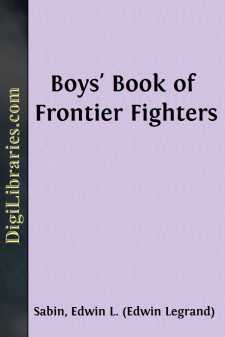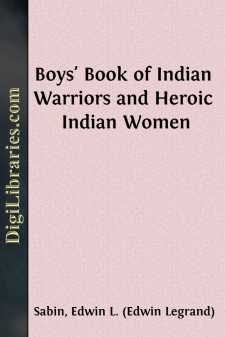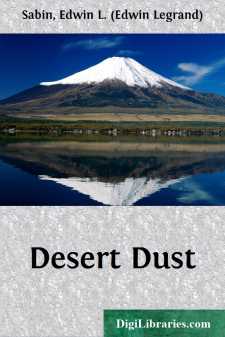Categories
- Antiques & Collectibles 13
- Architecture 36
- Art 48
- Bibles 22
- Biography & Autobiography 813
- Body, Mind & Spirit 142
- Business & Economics 28
- Children's Books 17
- Children's Fiction 14
- Computers 4
- Cooking 94
- Crafts & Hobbies 4
- Drama 346
- Education 46
- Family & Relationships 57
- Fiction 11829
- Games 19
- Gardening 17
- Health & Fitness 34
- History 1377
- House & Home 1
- Humor 147
- Juvenile Fiction 1873
- Juvenile Nonfiction 202
- Language Arts & Disciplines 88
- Law 16
- Literary Collections 686
- Literary Criticism 179
- Mathematics 13
- Medical 41
- Music 40
- Nature 179
- Non-Classifiable 1768
- Performing Arts 7
- Periodicals 1453
- Philosophy 64
- Photography 2
- Poetry 896
- Political Science 203
- Psychology 42
- Reference 154
- Religion 513
- Science 126
- Self-Help 84
- Social Science 81
- Sports & Recreation 34
- Study Aids 3
- Technology & Engineering 59
- Transportation 23
- Travel 463
- True Crime 29
Boys' Book of Frontier Fighters
Description:
Excerpt
Captain Benjamin Church, born in Plymouth Colony of old Massachusetts, was a rousing Indian fighter. He earned his title when in 1675 the Pokanoket League of nine Indian tribes, under King Phillip the Wampanoag, took up the hatchet against the whites. Then he was called from his farm in Rhode Island Colony, to lead a company into the field. So he bade his family good-by, and set forth.
He was at this time aged thirty-six, and built like a bear—short in the legs, broad in the body, and very active. He knew all the Indian ways, and had ridden back and forth through the Pokanoket country, between his Aquidneck home on Rhode Island, and Plymouth and Boston on the Massachusetts coast. In his Indian fighting he never turned his face from a trail. The famous Kit Carson of the West was no bolder.
King Phillip's War lasted a year and two months, from June of 1675, into August of 1676.[] Captain Church soon became the Indians' most hardy foeman.
He was constantly trailing the King Phillip warriors to their "kenneling places," routing them out and killing them, or taking prisoners, whom he spared for scouts.
At the terrible battle of Sunke-Squaw, when in dead of winter the colonist soldiery stormed the Indian fort in southern Rhode Island, he was struck by three balls at once. One entered his thigh and split upon the thigh-bone; one gashed his waist; and one pierced his pocket and ruined a pair of mittens—which was looked upon as a real disaster, in such cold weather.
It was while his wounds were still bandaged, and he was yet unable to mount a horse, that the bold Captain Church had a fierce hand-to-hand tussle with a stout Netop, which gave him great renown.
Now the Netops were of the allies in the Pokanoket League, and this warrior had been captured by a Mohegan ally of the Captain Church men. Captain Church wished to save him, in order to get information from him; but owing to a wound in the leg the Netop could not travel fast, therefore the Mohegan was granted leave to kill him, that night.
Accordingly the Netop was seated by the large fire, with a Mohegan at either side of him, to hold him fast until the tomahawk had been sunk into his head. Although Captain Church had seen much blood-shedding and had made short work of many other Indians, to-night he walked away, with his heart a little sick.
The Netop had appeared to be waiting for the tomahawk, as if he intended to die like a brave. But when the Mohegan struck, he suddenly jerked his head aside so cleverly that the tomahawk not only missed him entirely, but flew from the Mohegan's hand and almost killed one of the others.
That was a surprise. With a quick writhe the Netop broke loose, and bolted headlong, fairly into Captain Church himself, among the baggage and the horses. This was a surprise for the captain, too. He grabbed him but could not keep him, because he was a naked Indian and as slippery as an eel.
Away they two went, both lame. The captain had not wished the Netop to be killed, but he was bound that he should not escape. In the darkness the Netop stumbled, and again the captain grabbed him. No use. This Netop was an eel and a panther as well—slippery and strong. A second time he wrenched free. Once more away they went, with the captain now grasping for his hair. On through the surrounding swamp they pelted, crunching the ice so loudly that the captain thought everybody within a mile should hear....





